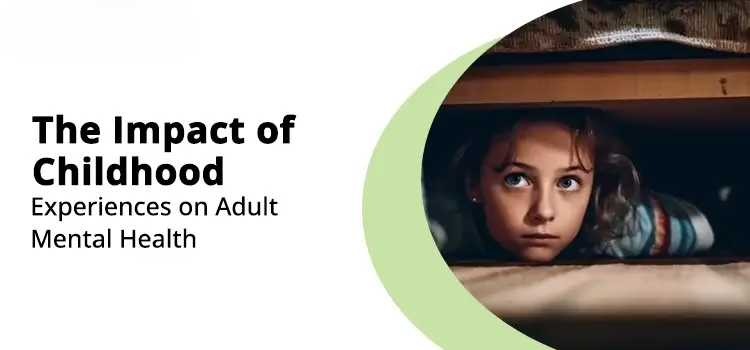
Childhood is a formative period that shapes a person’s emotional, social, and psychological development. The experiences encountered during these early years significantly influence behaviours, thought patterns, and relationships in adulthood. By understanding how childhood experiences shape adult behaviours, individuals can gain insights into their actions and seek help from professionals like the best psychologist in India to address unresolved issues.
The Importance of Childhood in Psychological Development
During childhood, the brain undergoes rapid development. Emotional regulation, problem-solving skills, and social interactions are learned during this critical phase. Early experiences become deeply ingrained in the brain, forming patterns that influence personality and coping mechanisms. Positive environments nurture resilience, while negative experiences may cause long-lasting behavioural and psychological challenges.
How Childhood Experiences Shape Adult Behaviour
1. Attachment and Relationships
Attachment theory, developed by John Bowlby, explains how early bonding with caregivers influences relationships in later life. Secure attachments, characterised by consistent and nurturing care, often lead to healthier relationships as adults. In contrast, insecure attachments (anxious, avoidant, or disorganised) may result in trust issues, emotional dependence, or fear of intimacy.
Examples of Adult Behaviours Based on Attachment Styles
-
Secure Attachment: Confidence in relationships and effective communication.
-
Anxious Attachment: Over-dependence on partners and fear of abandonment.
-
Avoidant Attachment: Difficulty expressing emotions and reluctance to commit.
-
Disorganised Attachment: Erratic behaviour and fear-driven responses in relationships.
2. Emotional Regulation
Children learn how to manage emotions through interactions with parents and caregivers. When parents model healthy coping strategies, children are more likely to develop emotional intelligence. Exposure to neglect, criticism, or emotional outbursts can result in emotional difficulties in adulthood.
Impact on Adult Behaviour:
-
Difficulty managing stress.
-
Impulsive reactions.
-
Increased risk of anxiety or depression.
3. Self-Esteem and Self-Worth
Parental support and encouragement play a crucial role in shaping a child’s self-image. Positive reinforcement fosters confidence, while constant criticism can lead to low self-esteem.
Impact on Adult Behaviour:
-
Healthy self-esteem results in assertiveness and resilience.
-
Low self-worth may cause self-doubt, people-pleasing, or avoidance of challenges.
4. Trauma and Adverse Childhood Experiences (ACEs)
Adverse Childhood Experiences (ACEs) such as abuse, neglect, or witnessing violence can have a profound impact on mental health. The stress caused by these events can alter brain development, increasing the risk of mental health disorders and maladaptive behaviours.
Impact on Adult Behaviour:
-
Hypervigilance or heightened fear responses.
-
Difficulty forming trusting relationships.
-
Increased likelihood of addiction or self-destructive behaviour.
5. Parenting Styles and Behaviour Modelling
Parents are a child’s first role models. Authoritative parenting, characterised by warmth and structure, tends to produce well-adjusted adults. In contrast, authoritarian (strict and unyielding), permissive (lenient), or neglectful parenting can lead to behavioural issues.
Impact on Adult Behaviour:
-
Authoritative upbringing: Balanced and responsible behaviour.
-
Authoritarian upbringing: Rebellion or submissiveness.
-
Permissive upbringing: Lack of boundaries and self-discipline.
-
Neglectful upbringing: Emotional detachment and trust issues.
The Neuroscience of Early Experiences
Research in neuroscience supports the significant influence of childhood experiences. The brain’s plasticity during early years makes it highly adaptable to environmental influences. Chronic stress during childhood increases cortisol levels, affecting brain regions crucial for memory and decision-making.
Brain Regions Affected by Childhood Experiences:
-
Amygdala: Heightened activity in response to fear or perceived threats.
-
Prefrontal Cortex: Impaired decision-making and impulse control.
-
Hippocampus: Memory-related difficulties.
Breaking the Cycle: Healing and Growth
Understanding the connection between childhood experiences and adult behaviours is the first step toward healing. Psychotherapy, mindfulness practices, and self-awareness exercises can help individuals reframe negative experiences and develop healthier behaviours.
Seeking Professional Help
The best psychologist in India can help individuals understand and address the impact of childhood experiences. Therapy options may include:
-
Cognitive Behavioural Therapy (CBT): Helps reframe negative thought patterns.
-
Trauma-Focused Therapy: Addresses unresolved trauma.
-
Mindfulness-Based Therapy: Enhances emotional regulation.
-
Family Therapy: Improves family dynamics and communication.
Practical Tips for Personal Growth
1. Self-Reflection
Journaling or self-reflection exercises can help identify patterns rooted in childhood.
2. Emotional Awareness
Learn to recognize and validate your emotions.
3. Develop Healthy Relationships
Build relationships based on trust, communication, and mutual respect.
4. Mindfulness Practices
Incorporate meditation or breathing exercises to manage stress.
5. Seek Support
Don’t hesitate to reach out to mental health professionals.
Conclusion
Childhood experiences play a pivotal role in shaping who we become as adults. By recognising the influence of these formative years, individuals can work towards personal growth and healing. With the guidance of experts like the best psychologist in India, it is possible to overcome negative patterns and lead a more fulfilling life.

